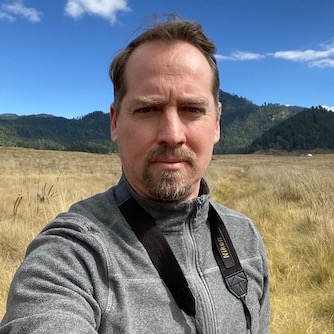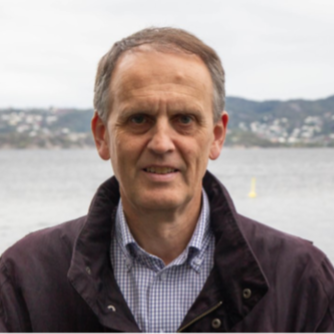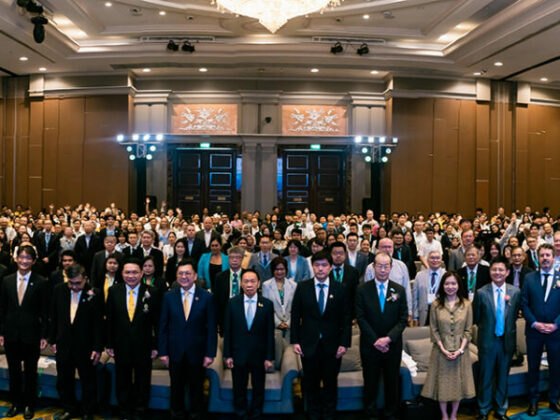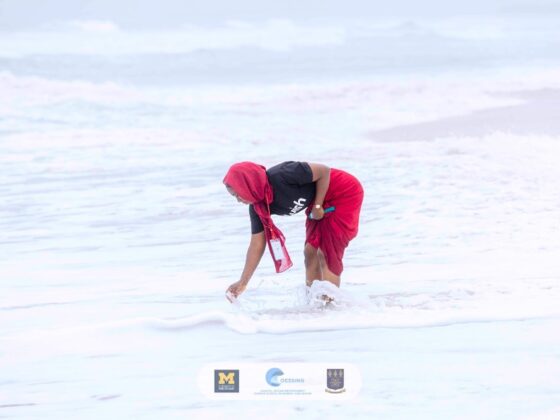Beyond its functions of climate regulator and ecosystem support, the ocean plays a pivotal economic role for communities worldwide by facilitating over 90% of global trade. Through its Challenge 4: “Develop a sustainable and equitable ocean economy”, the United Nations Decade of Ocean Science for Sustainable Development 2021-2030 (the ‘Ocean Decade’) aims to harness this potential, offering solutions for an equitable and sustainable ocean economy amid changing environmental, social, and climate conditions.
According to the Trade and Environment Review 2023 of the United Nations Conference on Trade and Development (UNCTAD), the ocean economy is estimated to be worth between US$3-6 trillion per year. At stake are the livelihoods of over three billion individuals, predominantly in coastal developing nations, who rely on ocean-based industries for income, trade, and employment.
The Ocean Decade recognizes the crucial role of the ocean economy in fostering equitable prosperity and highlights the need for effectively protecting marine ecosystems for human well-being. Its Challenge 4 strives to advance informed and inclusive decision-making through ecosystem-based management approaches, such as Marine Spatial Planning (MSP). These approaches are intended to generate essential knowledge about ocean ecosystems, facilitate innovation, ensure the equitable distribution of information, technology, and economic benefits, and prioritize a healthy rights-based society.
As part of the Vision 2030 process launched by the Ocean Decade, Working Group 4 is formulating tailored and strategic objectives for Challenge 4. The Group is led by two expert co-chairs: Andrew Rhodes, Head of Mexico Public Affairs at iAlumbra, and Peter M. Haugan, Policy Director at the Institute of Marine Research in Norway.


Under their leadership, over a dozen members from various fields and disciplines are collaborating on strategies to integrate economic activities with environmental preservation and societal well-being. By establishing connections between these intricate concepts, Working Group 4 is reshaping the narrative around the ocean economy. No longer seen merely as a sustenance provider, it is a catalyst for equity, sustainability, and adaptability in the face of a changing environment.
Encompassing a wide array of ocean-related economic activities, the concept of a sustainable ocean economy addresses other relevant challenges. For example, the ocean economy has the potential to contribute to climate change mitigation by developing offshore renewable energy, decarbonizing maritime transport, and greening ports. It also supports a circular economy by renewing standards for fishing gear design and creating green infrastructure in coastal areas to preserve biodiversity and landscapes while benefiting tourism and the coastal economy.
Given the complex nature of Challenge 4, the Working Group is developing effective responses to a range of interconnected obstacles – climate change, institutional inefficiencies, knowledge gaps, financial challenges, and the lack of collaboration and trust.
Co-chairs Andrew Rhodes and Peter M. Haugan emphasize the need for global, highly visible, and long-term collective efforts by a diverse range of stakeholders. A special focus is directed towards inclusive approaches for Indigenous peoples, local communities, and small-scale enterprises, ensuring their participation in key decision-making efforts and policies. “Ocean science in the wide definition adopted in the Decade needs to work closely with policy and society, including local communities and industry to achieve the ocean economy we want,” they said.
Looking ahead to 2030, Working Group 4 envisions an equitable ocean economy grounded in accessible and comprehensive knowledge, sustainable environmental, and social practices in both current and future generations.
The Ocean Decade transformative journey to 2030
Between 22 Janvier and 22 Février 2024, the global ocean community participated in the review process of the White Papers developed by the 10 Working Groups of Vision 2030.
The final draft versions will be presented and debated during ‘Session 2 – Science and Solutions for a Sustainable and Resilient Ocean Economy’ on 10:00-11:00 on 11 Avril at the 2024 Ocean Decade Conference in Barcelona, a pivotal event for the Vision 2030 process. The public will be able to follow the session via livestream; the link will be available soon.
The outcomes of discussions will feed into the final version of the documents.
Click here to meet Working Group 4 and find out more about the Vision 2030 process.
Pour plus d'informations, veuillez contacter
Équipe Vision 2030(vision2030@unesco.org)
***
À propos de la Décennie de l'océan :
Proclamée en 2017 par l'Assemblée générale des Nations unies, la Décennie des Nations unies pour l'océanologie au service du développement durable (2021-2030) ("la Décennie de l'océan") vise à stimuler l'océanologie et la production de connaissances afin d'inverser le déclin de l'état du système océanique et de catalyser de nouvelles possibilités de développement durable de cet immense écosystème marin. La vision de la Décennie de l'océan est "la science dont nous avons besoin pour l'océan que nous voulons". La Décennie de l'océan fournit un cadre de rassemblement pour les scientifiques et les parties prenantes de divers secteurs afin de développer les connaissances scientifiques et les partenariats nécessaires pour accélérer et exploiter les progrès de l'océanographie afin de parvenir à une meilleure compréhension du système océanique et de fournir des solutions scientifiques pour réaliser l'Agenda 2030. L'Assemblée générale des Nations unies a chargé la Commission océanographique intergouvernementale (COI) de l'UNESCO de coordonner les préparatifs et la mise en œuvre de la Décennie.
À propos du CIO/UNESCO :
The Intergovernmental Oceanographic Commission of UNESCO (IOC/UNESCO) promotes international cooperation in marine sciences to improve management of the ocean, coasts and marine resources. The IOC enables its 150 Member States to work together by coordinating programmes in capacity development, ocean observations and services, ocean science and tsunami warning. The work of the IOC contributes to the mission of UNESCO to promote the advancement of science and its applications to develop knowledge and capacity, key to economic and social progress, the basis of peace and sustainable development


